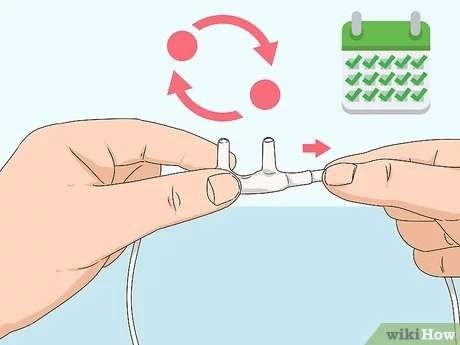A nurse on a medical-surgical unit is caring for a client who has hearing loss. Which of the following actions should the nurse take?
Speak in a louder than usual tone of voice during conversation.
Mute the client’s television before beginning a conversation.
Avoid the use of hand gestures when talking to the client.
Use short phrases when talking to the client.
The Correct Answer is D
Use short phrases when talking to the client.
Some possible explanations for the other choices are:
Choice A is wrong because speaking in a louder than usual tone of voice during conversation can distort the sound and make it harder for the client to understand.
The nurse should speak in a normal tone and enunciate clearly.
Choice C is wrong because avoiding the use of hand gestures when talking to the client can limit nonverbal communication and reduce the client’s comprehension.
The nurse should use appropriate facial expressions
Nursing Test Bank
Naxlex Comprehensive Predictor Exams
Related Questions
Correct Answer is B
Explanation
It occurs because nicotine stimulates the release of dopamine, a neurotransmitter that regulates mood and pleasure. When nicotine intake is stopped, dopamine levels drop and cause anxiety and irritability.
Choice A is wrong because tachycardia, or rapid heart rate, is not a symptom of nicotine withdrawal. In fact, smoking can increase blood pressure and heart rate, so quitting smoking may lower them.
Choice C is wrong because weight loss is not a symptom of nicotine withdrawal. On the contrary, weight gain is more likely to occur after quitting smoking, because nicotine suppresses appetite and increases metabolism.
Choice D is wrong because vomiting is not a symptom of nicotine withdrawal. Vomiting may be a side effect of some nicotine replacement therapies, such as patches or gum, but it is not caused by the lack of nicotine itself.
Correct Answer is C
Explanation
Clean the cannula prongs daily.

This is because the nasal cannula can become contaminated with bacteria and mucus, which can cause infection and irritation of the nasal mucosa. Cleaning the cannula prongs daily with soap and water can prevent these complications.
Choice A is wrong because humidifiers can help moisten the dry oxygen and prevent nasal dryness and bleeding. Humidifiers should be used for oxygen flow rates higher than 4 L/min.
Choice B is wrong because the cannula prongs should be positioned curving downward in the nose, not upward. This allows for better alignment with the natural direction of airflow and reduces the risk of dislodgement.
Choice D is wrong because keeping the oxygen tubing off the floor is not a specific action for nasal cannula use. It is a general safety measure to prevent tripping and contamination of the tubing.
Whether you are a student looking to ace your exams or a practicing nurse seeking to enhance your expertise , our nursing education contents will empower you with the confidence and competence to make a difference in the lives of patients and become a respected leader in the healthcare field.
Visit Naxlex, invest in your future and unlock endless possibilities with our unparalleled nursing education contents today
Report Wrong Answer on the Current Question
Do you disagree with the answer? If yes, what is your expected answer? Explain.
Kindly be descriptive with the issue you are facing.
